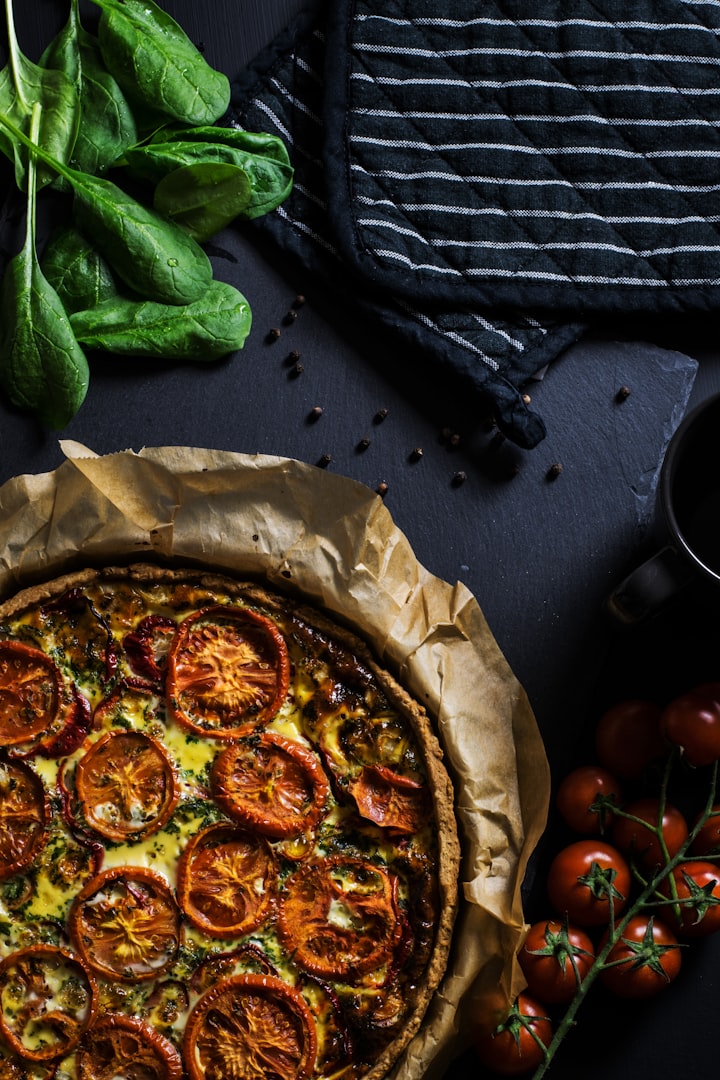Mom's Way
lasting impressions

People lost money during the worst economic hardship in American history. The year was 1929. The Great Depression began and ended approximately four years later. It was during the Great Depression that my mother was a child growing up on her family's farm in Central Pennsylvania.
Throughout my mother's formative years, ages five to eight, the economic depression played out which had a powerful effect on my mother. If truth were told, children and adolescents experienced the worst consequences of the Great Depression. During their formative years, children experience rapid social, emotional, intellectual, and physical development between ages zero to eight. With that being the case, it is understandable that sacrificing, going without, worrying about family members, and about the cost of things definitely had an adverse effect on the children. In fact, the Great Depression's hardships took a toll on my mother's mental and emotional health.
Never thinking about herself, our family was her first priority. Selfless! Indeed, there wasn't a self-centered bone in her body. Mother was loving, kind, helpful, and giving. She kept things simple. Always keeping to her routine, she did laundry on Mondays; she baked nine loaves of bread and cinnamon rolls on Thursdays; she cleaned the house on Saturdays. Every day, she prepared all the meals, washed the dishes by hand (no dishwasher back then), and straightened up the house by sweeping, dusting, and changing sheets, and making the beds. In addition, she made most of my clothes and my two sister's clothes as well as doing all the mending and repairing of our family's clothing. In season, with gardening, canning, and harvesting, she squeezed these activities into her schedule on Tuesdays and Wednesdays.
Without running water, my mother had to pump the water from the well, carry the water about 20 feet to the house. Once inside, the water would be heated on the electric stove. Then, the hot water was used for washing dishes, doing the laundry, cleaning the floors, and for our Saturday night baths in a galvanized tub.
While dad was at work, mother would do the farming chores, such as feeding chickens, collecting eggs, feeding the cow, and when necessary milking the cow. There were ducks and geese too on our small farm. Down the road, my father's dad's farm was a full working farm with turkeys, chickens, pigs, milking cows, ducks, and geese. If there was an animal to stay away from, it would be the geese who were mean and would chase after you. For me, hissing geese were to be avoided at all cost.

"Cleanliness is next to Godliness"
On our side of the mountain, we had plenty of fruit to fill our bellies. While there were apple trees, red cherry trees, black cherry trees, and wild peach trees, the twin pear trees were the closest to the house that grew right next to the concrete walkway which lead to the white shingled house.
While our two-story home wasn't a palace, my mom always keep our home exceptionally clean. During the seasonal Spring cleaning, my mother would thoroughly clean one room at a time. As a matter of fact, mother believed in the idiom, "cleanliness is next to Godliness." By doing so, she was keeping our family and our home clean which was considered a moral duty.

Usually, during Spring cleaning, the side porch facing West was the perfect spot to setup the wooden frame for placing our white laced freshly clean and starched curtains to dry. The curtains weren't hung on the clothes line that was close to the porch. On wash day, clothes were washed in the Maytag wringer wash machine and the clothes were hung to dry in the sunlight and in the fresh air.
In the Spring, the house was cleaned from top to bottom with the exception of the basement. The basement cellar was a combination of dirt and concrete which was the perfect spot for storing root vegetables and jars of canned fruits and vegetables.
"Waste Not Want Not"
Nothing went to waste! One time, the electricity went off when my mother was baking bread. Instead of throwing the under baked bread out, she made bread puddings, French toast and croutons.
When it came to sowing our clothes, she would recycle garments and create unique and custom dresses for us to wear. Years later, while watching television shows, she would hand braid cotton or wool fabric strips of material from worn out clothing. With her own hands, she braided the strips of material and hand hooked the braids into beautiful country rugs.

Wild berries never went to waste! We enjoyed going out in the woods to pick the wild berries. Invariably, children were expected to play outside. However, excluding making homemade ice cream and homemade root beer, my favorite task as a child was picking wild strawberries and raspberries with our mother. Eating berries as we picked, it was a terrific parent and child bonding activity. One of my dad's favorite pies was mother's strawberry and rhubarb pie while a plain strawberry pie was always my preference. After eating our fill of strawberries, my mother would freeze the strawberries for making pies, cakes and jams at a later date.
In our house, nothing was wasted!
"A Penny Saved Is a Penny Earned"
At the time, we might have been considered poor, but we had the great outdoors as our playground, plenty of fresh fruit and vegetables, and a roof over our head. As a child, my thoughts of being poor where nonexistent.
In our elementary school, we were encouraged to save money with the banks giving out savings books to place our nickels and dimes and we were able to watch our money grow.
Thinking about money being placed in envelopes to pay bills, a very vivid memory plays in my mind. The memory of my mother counting out the coins from an envelope when paying the insurance man when he made his rounds. Before he arrived, mother frugally scrimped and saved loose change placing it in an envelope in order to pay the insurance man when he showed up at our door. Most likely, it was the quarterly payments she was making on the life insurance policies that were purchased.
Amazingly, mother was able to stretch a dollar further than anyone can imagine. Instead of purchasing something in the stores, she made it at home. Since mother proclaimed that she could make it better and cheaper at home, we rarely ate out at restaurants.
"Left an Impression"
Ultimately, the remembrances shared were made during my formative years. Understanding what my mother went through growing up, definitely puts things in perspective. For example, my mother taught me invaluable lessons about taking care of family, being frugal, using resources wisely, and saving money. In her way, my mother showed unconditional love. As a strong, loving, kind, gentle, and giving woman, my mother's way would shape my values and would form deep and lasting impressions regarding motherhood.
About the Creator
Babs Iverson
Barbara J Iversen, also known as Babs Iverson, lives in Texas and loves her grandkids to the moon and back. After writing one story, she found that writing has many benefits especially during a pandemic and a Texas-size Arctic Blast.






Comments (1)
Yes, the Depression years greatly impacted that generation, including my husband's grandparents and my own. They just had a different and probably in some ways better mindset about valuing what you have. I enjoyed these memories of your mother so much :) And I'm from Central PA!!